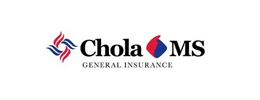Last updated on: September 22, 2025
The Reliance Arogya Sanjeevani Plan and Reliance Health Gain Plan are both health insurance policies but cater to distinct needs. The Arogya Sanjeevani Plan is a standardized, budget-friendly policy mandated by IRDAI, offering essential hospitalization coverage (₹50,000 to ₹10 lakh sum insured) with basic features like room rent, ICU charges, and coverage for common treatments—ideal for first-time buyers or those seeking simple, affordable protection. In contrast, the Reliance Health Gain Plan is a customizable plan with a wide array of sum insured options (up to ₹1 crore), extensive add-ons (OPD, critical illness, maternity cover), and wellness benefits, suiting buyers desiring comprehensive, flexible coverage. In summary, choose Arogya Sanjeevani for simplicity and affordability, while Health Gain is better for broader, personalized protection.
The Reliance Arogya Sanjeevani Plan and the Reliance Health Gain Plan frequently present controversy when it is proposed that the most effective health insurance policy in India is sought in 2025. These two Reliance general insurance health insurance products have different needs. Both seek to provide financial security in case of a medical emergency although they differ in terms of benefits, flexibility, premiums, and coverage.
Reliance Arogya Sanjeevani Plan is a standardized policy of the IRDAI which is designed to pay basic hospitalization costs. Reliance Health Gain Plan is a flexible and extensive plan that requires more features to be interested in a broad health cover.
The question comes out frequently: Do I want to be simple and get an ordinary policy or am I better to be broad? We shall divide the nature of the two.
Reliance Arogya Sanjeevani Plan is recommended to first-time buyers, young incomes, or those families who want simple yet inexpensive health plan. According to the requirements of the government, all the insurers in India, such as Reliance, have to provide this plan with standard coverage and easy comparison.
Did you know? Arogya Sanjeevani Plan was pursued to instill confidence by ensuring that conditions of health insurance remained the same, and remained hustle free among all Indians.
Reliance Health Gain Plan will fit best families, and individuals that need personalized add-ons and a large amount insured. It is effective when the income is higher or when there are more complicated medical needs, when a person wants to be flexible.
Expert opinion: Due to the increasing healthcare costs in tier 1 cities, more young working couples are now considering customizable insurance policies such as Reliance Health Gain as a way of meeting costly healthcare costs in cases of ill health and maternity.
We shall now see the match up of these plans on critical parameters.
| Feature | Arogya Sanjeevani | Health Gain |
|---|---|---|
| Minimum Sum Insured (Rs) | 50,000 | 3,00,000 |
| Maximum Sum Insured (Rs) | 10,00,000 | 1,00,00,000 |
| Hospitalization Cover | Yes | Yes |
| Pre-hospitalization Days | 30 | 0-60 |
| Days after hospitalization | 60 | As many as 180 |
| No-Claim Bonus | 5 to 50 percent | 10 to 100 percent (varies) |
| Room Rent Limit | None to less than 5 lakh | Mostly none |
| Maternity Benefits | Not Insured | Additional option |
| Co-payment | 5 percent | The co-payment is optional in several cases |
| Out-patient Cover | No | May be added on |
| Critical Illness cover | Not covered in any manner | Available as a rider |
In 2025, again age, existing conditions and risk should be taken into consideration when purchasing family health insurance. Reliance Arogya Sanjeevani is affordable to young nuclear families in case they have to take core hospital expenses. Reliance Health Gain will be suitable to larger families, those parents aged above 40 or individuals wishing to cover maternity and huge sum insured.
With the need to have regular health checkups or with parents having lifestyle diseases it would be of more value to have lower waiting times and restoration benefits of Health Gain.
What is the most appropriate Reliance health policy with the elderly?
In case it is adjusted with higher sum insured and add-ons, Reliance Health Gain usually provides older parents with better reimbursement of waiting times and extra medical costs.
Is it possible to change Arogya Sanjeevani to Health Gain in future?
Yes, renewing by port policies is possible, according to the rules of IRDAI.
Did you know? Almost 40 percent of urban Indian families are choosing plans with sum insured greater than [?]10 lakh in 2025 owing to increase in the average costs of hospitalisation.
Reliance Health Gain is unique due to its convertibility and add-on covers.
Meanwhile, Arogya Sanjeevani adheres to a one-size-fits-all strategy, and there is not much room to add-ons.
Provided by experts: Insurance analysts suggest tailored covers to millennial families because it provides the protection that can be relevant without unnecessary covers.
Should individual or family floater plans be purchased?
A floater may suit in case your family members are young and healthy. In the case of older members that have various health requirements, individual policies can be more functional.
Does Health Gain include OPD and dental?
Yes, OPD and certain dental are covered in case you opt to add them as options.
Advanced digital claim processing is what both policies employ in case of Reliance General Insurance, and thus, it is not difficult to open claims online, monitor their status, and receive a speedy refund. Nevertheless, its process is homogenous pan-India and easy to follow due to the standard format chosen by Arogya Sanjeevani. With more complicated benefits, Health Gain might need additional add-on and benefit claims documentation.
Did you know? In early 2025, surveys indicate that majority of claims under the Arogya Sanjeevani have been done within 7 working days provided all the documents are in order.
What is the way to claim Reliance health insurance in 2025?
Intimate Reliance through the use of call or application, provide documents to TPA at hospital and receive cashless or reimbursement payment as policy.
Both plans include chronic diseases coverage?
Yes, following period of waiting as policy is stated. Health Gain can offer shorter waiting time on specific diseases.
Insider knowledge: Do not simply look at the difference in the premiums. Determine the actual out of pocket cost under the consideration of co-pay, sub- limits as well as actual experience with other customers who have gone through hospitalization.
Both Arogya Sanjeevani and Health Gain omit:
Some special exclusions might also apply depending on the selected add-ons in Reliance Health Gain. Check the policy wordings at all times in the proposal form.
Is it possible to purchase both plans simultaneously?
Yes, you can take both, you see you have to. One may be used at the time of claim once the other is exhausted.
Are there any tax benefits?
Either of the plans would be tax exempted under Section 80D of the Income Tax Act as premium paid.
Reliance Arogya Sanjeevani is a regulated low-premium basic hospital cover that is ideal to be used by new entrants or those having simple requirements. Reliance Health Gain is a comprehensive and versatile coverage with an added sum insured, tailor-made add-ons, and greater coverage of a family or a person with special medical requirements. Decide based on the present health conditions, family risk history, cost, and prospective health services.
Is it better Arogya Sanjeevani or all inclusive plans such as Health Gain?
Extensive plans are more protective and flexible. Sanjeevani has a job at basic and effective coverage.
What does Reliance health insurance claim require?
Admit card, hospital bill, discharge summary, investigations, identity proof, policy copy.
Is it possible to add sum insured in the current policy year?
Not on a yearly basis, but you can seek improvement when renewing it as per the approval of the insurers.
Are both of the plans covering COVID-19 and new age treatments?
Yes, both the plans, according to IRDAI, include COVID hospitalisation and AYUSH or new day-care procedures.
Does it have cashless claim in every Indian state and city?
Yes, but only when the hospital is a member of the empanel network of the insurer.












How could we improve this article?
Written by Prem Anand, a content writer with over 10+ years of experience in the Banking, Financial Services, and Insurance sectors.
Prem Anand is a seasoned content writer with over 10+ years of experience in the Banking, Financial Services, and Insurance sectors. He has a strong command of industry-specific language and compliance regulations. He specializes in writing insightful blog posts, detailed articles, and content that educates and engages the Indian audience.
The content is prepared by thoroughly researching multiple trustworthy sources such as official websites, financial portals, customer reviews, policy documents and IRDAI guidelines. The goal is to bring accurate and reader-friendly insights.
This content is created to help readers make informed decisions. It aims to simplify complex insurance and finance topics so that you can understand your options clearly and take the right steps with confidence. Every article is written keeping transparency, clarity, and trust in mind.
Based on Google's Helpful Content System, this article emphasizes user value, transparency, and accuracy. It incorporates principles of E-E-A-T (Experience, Expertise, Authoritativeness, Trustworthiness).